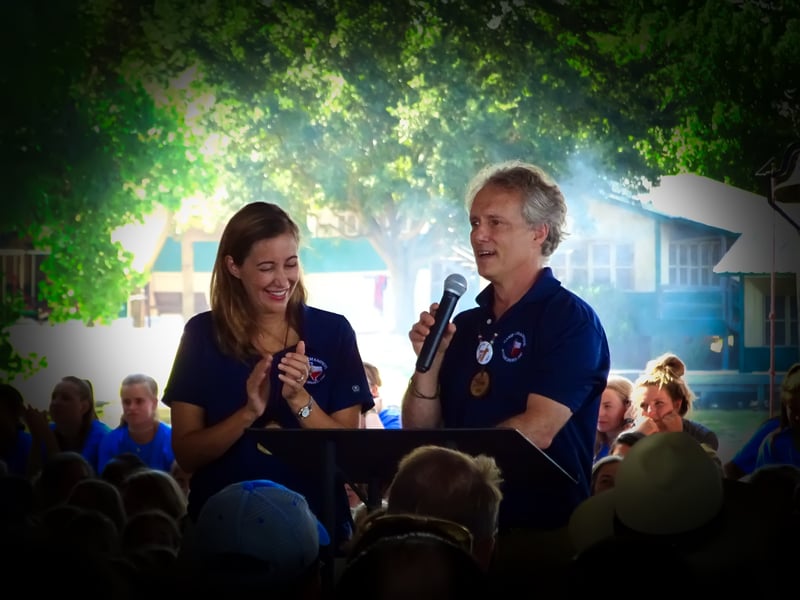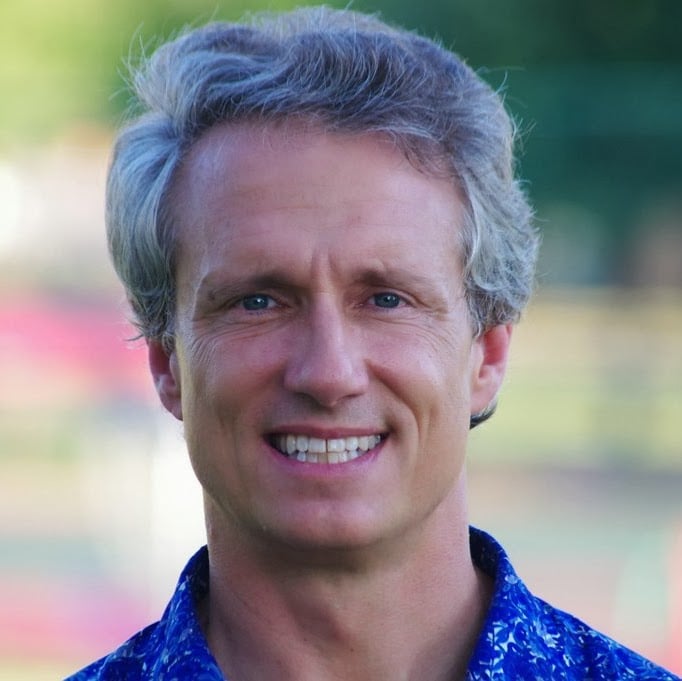
Occasionally, I will use this blog to answer a question that Susie and I often get, “What is it like to run a summer camp.
Today is such a blog.
Despite the fact that we have done this for over two decades, the transitions into camp and out of camp are an annual challenge.
As humans, we become comfortable in routine and the familiar. We develop a schedule and a series of habits that work for us and we repeat them daily. These patterns create order and consistency. We avoid change.
Camp really messes with order and consistency and forces major change.
Camp has its own patterns, schedules and habits. The challenge for us is to switch the habits and schedules every summer. There are 4 areas of major change.
A Crazy Daily Schedule
The schedule of camp is the most obvious transition. In the non-summer months, we work a typical schedule – Monday through Friday from 8:30-5:30 or 6:00. We will have some evening or weekend events, but most days we can count on being able to cook a meal around 6 and hang out until bedtime.
Not so much at camp. We wake at 6:30 and go to bed around 10 or 10:30 each night. At the time I am usually cleaning the dishes in the other months, I am attending Torchlight here. There is also no real weekend. We have a slightly different schedule on Sunday, but Sunday is also a full day at camp.
We do not work every hour of every day. Susie Ma’am and I allow ourselves a couple of evenings off each week. We also avail ourselves of rest period every day (note: we really miss rest period the remainder of the year). But the schedule is substantially different than the other months.
Proactive to Reactive
For the nine non-summer months, there are few things that we must do on any given day. Do not get me wrong, there is plenty to do – recruiting counselors on 3 continents, meeting new camper families, making improvements, building new structures and learning new ideas about camp – but we can do these things on our own schedule. Nothing forces us to do any of these things during any given week. As a result, we need to be disciplined, organized and proactive.
Then camp rolls around and we are suddenly on a schedule. We spend time with every cabin and we have daily meetings with our leadership team. We start every day with flag-raising and end with Taps. During the day, stuff will happen. You never know what the opportunities of the day might be – a counselor that gets bad news from home, a camper that is homesick, a stomach bug – but you know there will be something. And it will always be different.
As a result, the summer is a reactive time. Our job is to wake up with a sense of joy and attack every issue as an opportunity to model optimism and positivity. But we know that we cannot predict what the opportunities will be.
IPhone vs Walkie Talkie
During the year, we communicate with phones like normal humans. During the summer, the phones go away and we pick up walkie talkies. We have roughly 35 walkie talkies spread over our leadership team, the office, the maintenance crew and the health center. With them, I can reach almost anyone virtually instantly.
I like to joke that during the summer, I have several hundred people who will respond to anything I need within 5 minutes, but the rest of the year I have 5 who have the option to respond to nothing I say (6 if you include Dodger the Bassett Hound).
Our Home
For nine months each year, our home looks like a home. We have nice carpets, knick-knacks, flowers and the occasional delicate piece of furniture. During counselor orientation, we change almost every room. The carpets go into storage and everything that is delicate disappears.
Where we once discussed the arrangement of travel mementos on a table, we now ask ourselves, “What can be destroyed?”
During the summer, we will have 7-10 different people live in our home (directors, office workers, international chaperones, guests). We will bring over 200 high schoolers (our Senior Campers) into the home 5-6 times each. Every camper will spend some time here. We have a daily meeting every morning with our leadership team in our living room.
We do not think twice about people walking in and out of the house all day long.
I truly believe that I have been blessed to marry Susie Ma’am. She was never a camper as a child and did not initially have any interest in being a camp professional. She got her MBA in health care from Northwestern. She planned to run hospitals. She has since fallen in love with camp (we will share a blog about this later) and is a fantastic director now.
And she has embraced all these odd changes – including having our home transformed into Grand Central Station for 3 months each year.
In August, camp will end and we will go back to “normal” lives. That transition will be just as disruptive as the one we had at the start of camp. Our lives at camp are not better or worse than our lives the rest of the year. Each has it great gifts. Camp provides joy, meaning and impact on the lives of others. The rest of the year is about family, projects and travel.
But switching gears is hard. It takes a week on each side to re-adjust.
In the meantime, I plan to enjoy these habits and schedules of camp!
Steve Sir


